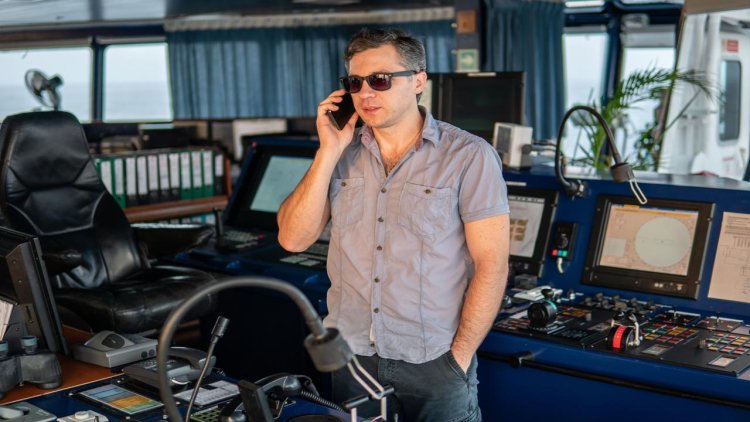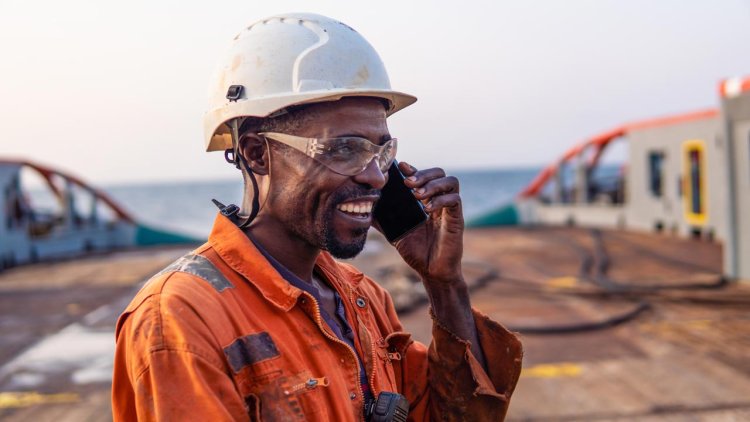The latest Seafarers Happiness Index report from The Mission to Seafarers has been published for the third quarter of 2021. The report highlights happiness levels have increased overall to 6.59/10, from 5.99 in the previous reporting period, returning to the same levels seen pre-COVID in Q3 2019.
The survey, conducted with support from Wallem Group and the Standard Club, suggests that COVID-19 related strains on seafarers are beginning to ease, and support measures for seafarer welfare have now had a chance to take effect, yet challenges with shore leave and ship-shore connectivity remain.
Shore leave and extended contracts have been a huge challenge since the start of the pandemic. 5% of seafarers responding said that they have been away at sea for over a year and a further 13% of respondents have served at sea for over 9 months, with the remainder reporting less than 9 months – so far.
The challenges of balancing home life with the uncertainties that the crew change crisis have led to many who were tentatively considering a move ashore accelerating their career change plans. The report emphasises that many seafarers are not intending to return to sea once they eventually get home.
The issue of retention in an already stressed workforce is a major concern. There is likely to be a growing shortfall in seafarers in the coming years, with seemingly little or no coherent mechanism to manage the problems coming over the horizon. The seafaring experience and expertise that is potentially going to be lost should serve as a warning to all.
Ship-to-shore connectivity is a long-held contentious issue. The crews who either have no access or feel that it is poor quality, slow, patchy and expensive, are not happy. Many respondents see the issue of internet access as one of the most telling ways of assessing how a company feels about its crews.

The issue of the cost of online access came up repeatedly this quarter. One seafarer stated:
“Our internet on board costs US$25 for 100MB”. That is the scale of how challenging the fee structures are for seafarers. Others bemoaned the size of their internet allocation, with one stating that owners gave them 250MB for the whole month consumption; potentially not even enough for one video call to their family.
This feedback raises stark concerns over the affordability and rationing of internet access on board, which is such a priority for so many seafarers from a welfare perspective. Owners and managers are encouraged to look again at the steps that could be taken to improve this.
The Revd Canon Andrew Wright, Secretary General of The Mission to Seafarers, commented:
“The issues relating to COVID-19 continue to impact seafarers, and are likely to for some time to come. That said, the data suggests that crew sentiment has stabilised, which is, at face value, good to see. However, it is too soon to say whether this is a start of positive change, or if seafarers are simply more resilient to the situation they are experiencing because of the pandemic – in other words, whether the strains they have been placed under for the past 21 months are a ‘new normal’.
“Seafarers have been through so much over the past two years. They have been key to world trade at a time of unparalleled risk and disruption, they have kept the lights and heat on, they have kept shop shelves stocked and they have allowed the world to edge towards recovery. We owe them all a huge debt of gratitude and enormous respect and recognition.
“We urge every shipowner, operator and manager to study this report, listen to their crew and act on what is needed to address their needs, whether that is the longstanding issue of crew changes or, as we see in this latest survey, the costs and constraints on internet access, which can be a lifeline for homesick seafarers.”

John-Kaare Aune, CEO at Wallem Group, added:
“We are pleased to see that the happiness level of the crew has increased in this latest report, but at the same time it is worrying to see how many seafarers are considering ending their career at sea due to extended periods on board. In order to keep the world’s supply chain going we as an industry must continue to have a sharp focus on getting back to normal crew change cycles, and most importantly the various countries around the world must treat seafarers as the key workers that they are and ease travel and crew change restrictions in their jurisdictions.”
Captain Yves Vandenborn, Director of Loss Prevention at the Standard Club, said:
“The Q3 results of the Seafarers Happiness Index show a small increase at 6.59/10 (up from 5.99 in Q2). There is an impression that small improvements are providing momentary relief, but fundamental issues such as leave and general poor treatment, exacerbated over the course of this pandemic, have resulted in many seafarers considering stopping their seafaring career and looking for greener pastures elsewhere.
“Despite the small upswing in data, sentiments and signs of trouble are already showing when it comes to a shortage of replacement crew, reflecting a drain of seafarers. This is also raised in a recent joint open letter by the International Chamber of Shipping, signalling how the shortage of workers will put the supply chain under great threat. Once again, we call upon all key stakeholders to put action to word and take care of our seafarers.”



